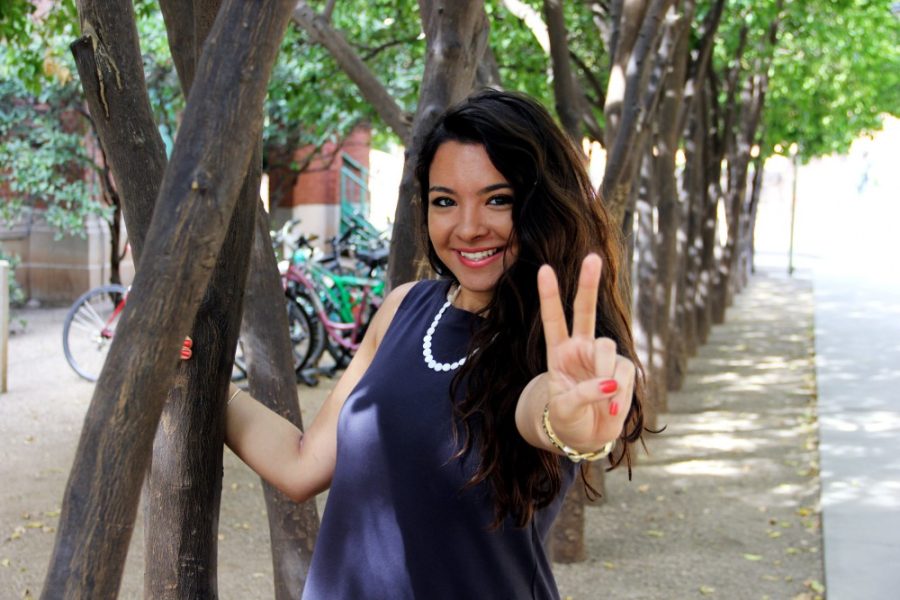Ahva Sadeghi recalls standing in a photo exhibit, staring at Pulitzer Prize-winning photograph “The Vulture” and crying as her heart dropped.
In “The Vulture,” the eponymous bird stands watch over a starving Sudanese child curled up on the ground. The piece is displayed in the Newseum, a journalism museum in Washington D.C., along with a collection of other photos that have won the Pulitzer Prize.
“You see all the bones in his body; you see his skin, and he’s completely malnourished. It looks like he’s dead,” Sadeghi said. “And then when I saw the vulture, I just became angry, like, you know, I should try to stop it … I think that education is a way that we can try to stop it.”
Sadeghi, a philosophy, politics, economics and law junior, spent last summer studying international relations at Georgetown University in Washington, D.C., through the Semester in Washington program, and interning with the Peace Corps. In her internship, Sadeghi said she studied cases involving issues related to human trafficking, which fed her passion for the cause of human rights.
This inspired Sadeghi to start United, a new campus club that aims to eradicate issues such as human trafficking and child soldiers through education about international violations of human rights.
“I thought that there needs to be some sort of movement on campus where people are educated about human rights,” Sadeghi said. “If they’re not aware of these problems, then these issues will never be addressed.”
Julia Leone, a member of United and a psychology senior, said the club will bring a lot of attention to the reasons human rights violations occur and will help educate people about solutions.
“It [human rights violations] affects everyone,” Leone said. “A lot of people don’t realize it’s an issue in America.”
Sadeghi said she does not want the club to be controversial or political.
“I want it to be everybody on a common playing field that we all think genocide is wrong; we all think rape is wrong,” Sadeghi said. “Now let’s try to educate people that use rape as a tactic of war why they shouldn’t do that.”
The meetings will start with a student newscast of international current events and human rights violations, followed by a 20-minute Skype session with an expert or world leader on the monthly topic and open discussion about the issue.
“It can bring awareness to human rights issues around the globe and also to local human rights issues in the campus community,” said William Paul Simmons, associate professor of gender and women’s studies and faculty supervisor for United. “I think that will be real important.”
United will also have an online journal with articles focusing on a student-chosen topic. Topics may include hunger issues, women’s rights, education, malaria and genocide. After the first meeting, United will start accepting applications from students who want to write for its website.
“It will be fun to work together with a lot of different students and do some good for the community,” Simmons said.
In the club’s first meeting, students will vote on themes to discuss each month.
“We’re all human and we should all have an incentive to care about another human, regardless if that human is in another country or experiencing a different situation,” Sadeghi said. “As humans, we are all united and all linked in a certain way.”
United will meet every Thursday at 5:30 p.m. starting on Nov. 4.
Students pay a $20 membership fee and get a club shirt. Scholarships will be available.









